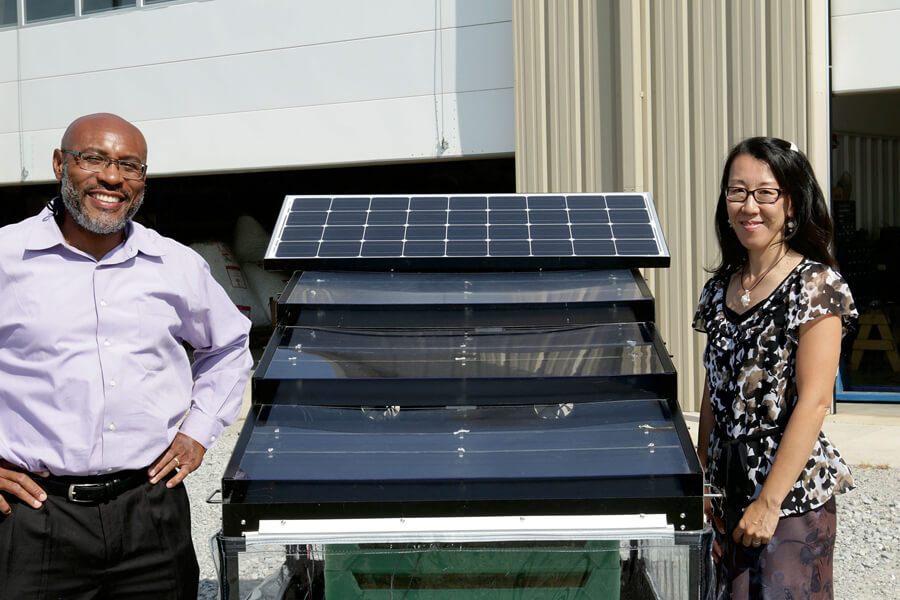
Think about this in the battle against world hunger: An estimated one-third of food produced in 2017 was lost post-harvest. Gone, due to mold, insects and such because of improper drying, according to the National Institutes of Health (NIH).
At Purdue University, something is being done. The American Society of Agricultural and Biological Engineers (ASABE) named a Purdue-developed simple solar device, called “DEHYTRAY,” used to dry grains, fruits, vegetables and other food products as a winner of its 2019 AE50 product design award. The DEHYTRAY is trademarked as a drying device by JUA Technologies with the U.S. Patent and Trade Office.
The concept for the DEHYTRAY was developed as part of the Purdue-led U.S. Agency for International Development (USAID) Feed-the-Future project for Food Processing and Post-Harvest Handling. The DEHYTRAY tray is being tested overseas by USAID-FPL project (maize) in Senegal and Kenya, USAID Horticulture Lab project (apricots) in Tajikistan and USAID/USDA-FAS project (grains and specialty crops) in Nigeria, as well as locally for small and mid-size growers of specialty crops in Indiana, Georgia and California under a U.S. Department of Agriculture-National Institute of Food and Agriculture-funded project.
The technology is being commercialized by JUA Technologies International LLC, a Purdue-affiliated startup created by Klein Ileleji, professor of agricultural and biological engineering, and Reiko Habuto Ileleji, who earned her PhD from Purdue’s College of Education. Jua is the Kiswahili word for sun.
The DEHYTRAY product design for manufacture was a team effort at JUA Technologies, led by Klein Ileleji and product designer, Heeju Kim, who is a visiting researcher at the Purdue University School of Design and at the University of Tokyo School of Information and Communication Engineering. Valuable design input from an Indiana-based product manufacturer and product-design consultant was useful to get the product manufacturable, user-friendly and functioning according to design requirements.
DEHYTRAY can dry products 24 hours faster than the traditional open-sun drying technique. Klein Ileleji believes the technology could be the answer for small-scale farmers.
“Temperatures inside the DEHYTRAY are doubled compared with conventional drying methods that rely on the sun, thereby achieving a faster drying rate, especially on cloudy days,” Ileleji says.
The innovative design of the portable device requires minimal setup time, as well as minimal cleaning maintenance. The design allows products placed in the device to be exposed to the maximum amount of solar energy.
“The clear cover allows maximum exposure of the product to solar energy, protects the crop from pilferage by livestock or rodents, and protects the crop from rain,” Ileleji says.
Every year, ASABE receives submissions from around the world to be considered for the AE50 award. As the winner, JUA Technologies will have its DEHYTRAY featured in the special issue of ASABE’s magazine, Resource: Engineering & Technology for a Sustainable World.

